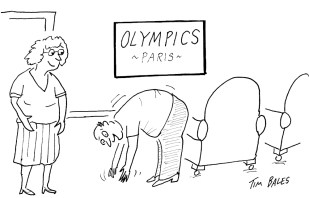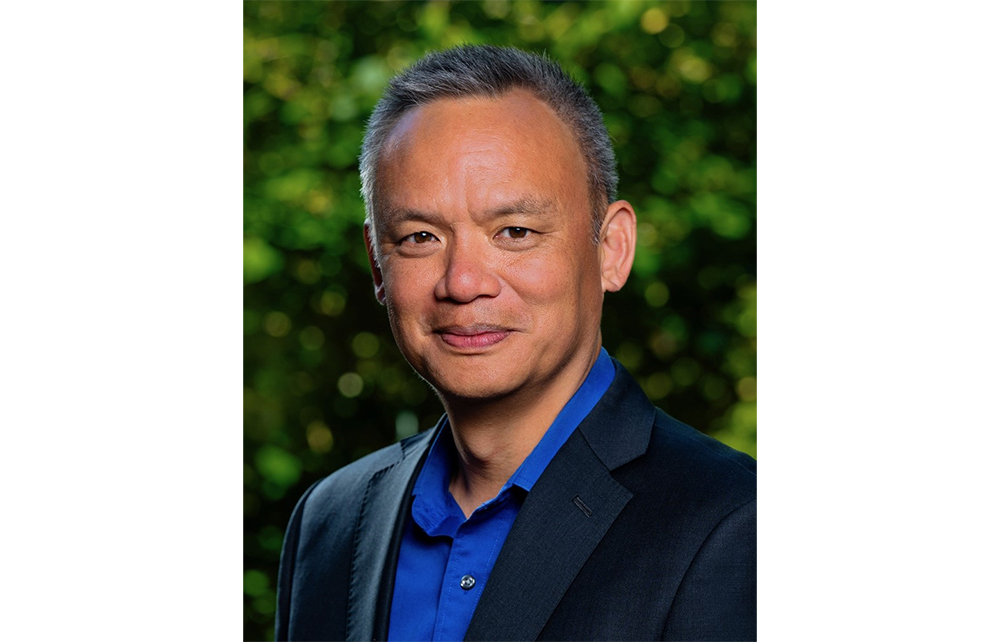As a child, Edward Wong had no idea that his father had been in the People’s Liberation Army. The only uniform the young Wong associated with his parent was the red blazer of Sampan Café, the Chinese take-away his father worked at in Virginia. China was seldom spoken of, with Wong getting only snatches and hints of what seemed like a painful family history – one the adults were keen to brush over. But, like many second-generation immigrants, Wong gravitated towards his father’s homeland in a bid to better understand the man. His parents’ silence only compounded the enigma.
Wong attended Xi’s military parades in central Beijing, just as his father had for a different Chinese leader
The quest took him to study China at graduate school and, after five years reporting in Iraq for the New York Times, to become a correspondent in Beijing in 2008. In his eight years reporting from China and the time since, he has had a front-row press-pack seat to watch the rise of Xi Jinping, the CCP’s tightening grip on the country’s restive borderlands in Xinjiang, Tibet and Hong Kong, and the souring of relations between the ‘two empires’ of China and the US. His father often seemed to be on his mind, and the result is At the Edge of Empire – a touching family memoir that cleverly (sometimes too cleverly) contrasts the elder Wong’s path through China with the younger’s reportage in the same regions decades later.
In 1950, the 18-year-old Yook Kearn Wong travelled to Beijing to take up a place at university in the new People’s Republic of China, against the advice of his parents in Hong Kong, then a British colony. He was so swayed by nationalistic fervour that he dropped out within months and signed up for military service. His time with the PLA took him to the country’s north-eastern corner, and then the north-west. In the vast highlands of Xinjiang, he saw China’s early efforts to integrate Kazakhs and Uighurs.
Aged 25, he returned to inner China to continue his studies, but when the famine after the Great Leap Forward swept the country in 1961, Wong hatched an escape plan. He’d just been rejected for membership of the CCP, and realised that the party would always be suspicious of him for having family in Hong Kong and America. Through a circuitous route, he reunited with his parents in Hong Kong and they eventually emigrated to the US.
A generation later, the American-born Edward returned to China as a foreign correspondent. He attended Xi’s military parades in central Beijing, just as his father had for a different Chinese leader. He visited the same border towns his father had been posted to, observing that by then the government was using far more heavy-handed measures of surveillance, imprisonment and cultural erosion to tackle ethnic tensions – which had considerably worsened since his father’s time. He covered the 2019 student protests in Hong Kong as the city fought for its autonomy. The lives of the two men, juxtaposed through time, form a picture of a country full of contradictions and in constant flux.

There are many striking and beautiful vignettes: the father’s Proustian recollections (of the first roast goose he tasted after escaping China famished, or the golden persimmons on a dirt track leading out from Xi’an to the country’s western edges); and the son’s encounter with two Kazakh teenagers on horseback, ‘with no aim but to be on the road’, who listen to his Walkman for a couple of hours before going on their way. But frustratingly often, the timeline-jumping feels like a collection of newspaper articles stitched together, leaving the reader lost as to what year or city they are in.
Edward eventually leaves China, concerned about his child’s health in the heavily polluted air of Beijing in the 2000s. I wonder what Yook Kearn made of his son’s initial decision to settle in a country from which he himself had so narrowly escaped. This is a book less about China’s political flashpoints and more about an immigrant’s yearning to understand his heritage and his family. Wong puts it touchingly in the final pages:
I wanted to experience more together in China, because I thought in this way I could both better understand my family and peer into the heart of a civilisation. After I left Hong Kong in the year of the protests, I knew none of that would happen. Father was too old for the long flights… and the cities, the country, the land had all changed. The time for those journeys together had passed.
In the end, isn’t that longing for roots what drives so many children of immigrants?
Listen to Cindy Yu interview author Edward Wong about his new book on the Chinese Whispers podcast:








Comments